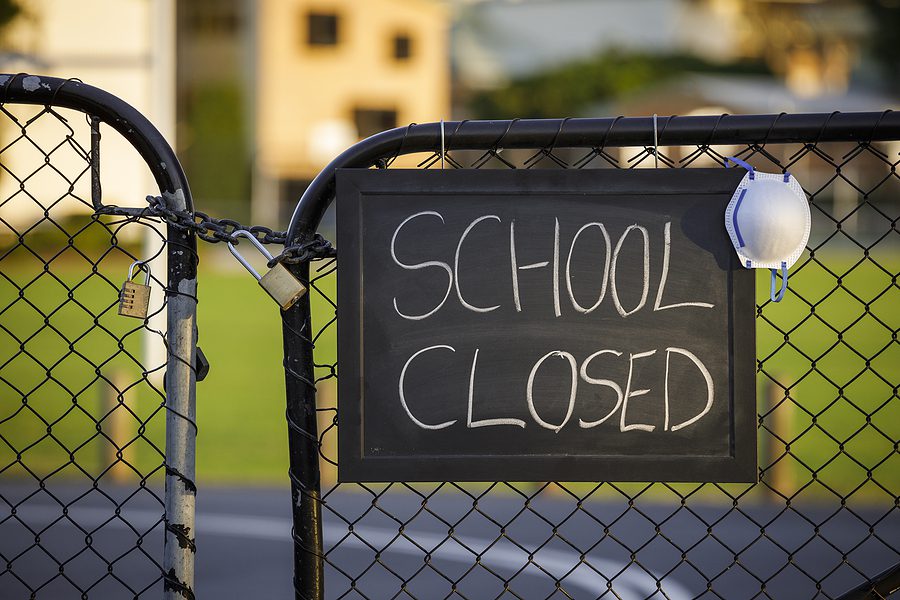ASBURY PARK, NJ – New Jersey Democrat leaders Vin Gopal and Steve Sweeney is leading the charge to restructure and consolidate school districts in New Jersey at the county level. This means your local school boards and hometown rule of your schools could end and county-wide agencies and officials could call the shots for your local school districts in the future.
Consolidation of school districts on the county level could save millions of dollars annually, but it would completely remove the notion of home-rule from the table of education forever.
The Senate today gave final legislative approval to a bill sponsored by Senate President Steve Sweeney and Senators Vin Gopal and Declan O’Scanlon to encourage the creation of K-12 regional and countywide school districts in an effort to improve educational quality, equality, and efficiency.
The comprehensive legislation establishes criteria for state-funded regionalization studies, increases flexibility on regionalization cost apportionment, bars any regionalization that would have a segregative effect, protects accrued tenure and seniority, and provides significant financial incentives for districts losing state aid because of declining enrollment to regionalize by extending the schedule for their Adjustment Aid cuts from four years to eight years.
Imagine a county like Ocean where the regionalization would create one large Ocean County Board of Education run by the political elites who can dump millions of dollars into countywide school board elections. The days of PTO moms and school dads having a say in local school affairs would end…and that’s what Gopal and the Democrats are hoping for. Highly populated towns like Lakewood where voters vote in bloc votes could seize control in future elections that have possibly dozens of candidates from all around the county.
“This will be the first major overhaul of New Jersey’s school regionalization statute in more than 25 years,” said Senator Sweeney (D-Gloucester/Salem/Cumberland). “It is designed to improve the quality of education by ensuring coordination of curriculum from K through 12 provide the enriched educational experience that smaller districts cannot offer, and generate long-term savings that can be used to hold down property taxes or reinvest in expanded educational programs.”
The legislation provides an expedited pre-approval process to enable Adjustment Aid districts to recalculate their state aid to factor in the increased aid they would receive for participating in countywide or K-12 regionalization studies during the 2021-22 school year. Districts must vote on regionalization within two years to stretch out their Adjustment Aid cuts over eight years, rather than four.
“Our legislation removes significant barriers to regionalization, including a statutory provision to recalculate state aid that would have made it more costly for some districts to regionalize than to remain separate,” said Senator Gopal (D-Monmouth). “Furthermore, it extends the timeline for Adjustment Aid cuts from four years to eight years for districts that regionalize. Most importantly, it is a voluntary process that provides local districts with greater flexibility to design a regionalization phase-in that makes sense for all.”
The act could also make financial educational superpowers in Democrat-controlled areas such as Essex County and Monmouth County. Imagine Monmouth County’s regional school district that includes Long Branch and Asbury Park having the majority over the rest of the county.
A Newark-East Orange-West Orange consolidation in Essex County could leave the rest of the county’s smaller districts fighting the big three for funding in the future.
Salem County is currently exploring the possibility of creating New Jersey’s first countywide school district with a state-funded Local Efficiency Achievement Program (LEAP) grant, and Kingsway Regional in Gloucester County, Pinelands Regional in Ocean and Burlington counties, Roosevelt in Monmouth County are using LEAP grants for K-12 regionalization studies. In all, more than 75 school districts encompassing 15 potential K-12 regional districts are currently involved in or exploring regionalization study options.
The bill requires the state Education Commissioner to certify that regionalization would not have an increased segregative effect in any affected district, and provides for accrued tenure and seniority rights to carry over into any newly created or expanded regional districts. The Senate voted 38-0 to concur with Assembly amendments that expanded the scope of the non-segregative language from race to include socioeconomic status, English Language Learners, and those with disabilities.
“We believe all students would benefit from the curriculum coordination and enhanced learning opportunities that come from attending a K-12 or countywide district,” said Senator Sweeney. “But regionalization is particularly important for small districts with declining enrollments that are having an increasingly hard time providing a quality educational experience and making their budgets work.
“One-school districts with fewer than 500 students spend 17% more per pupil than the 60% of New Jersey districts with 1,000 or more students, and those include the large urban districts and comprehensive K-12 districts that are supposed to spend more under the state formula. Regionalization makes sense,” said Senator Sweeney.
